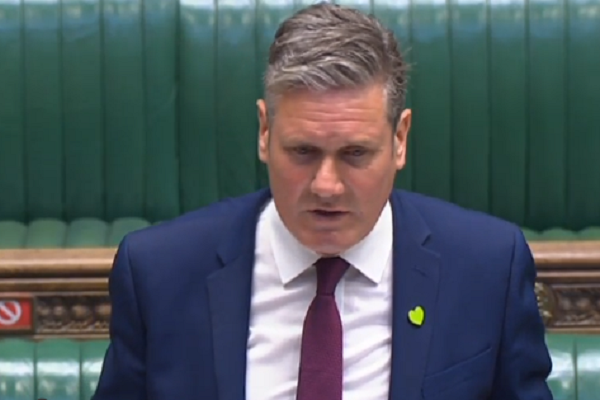The government’s latest legislative programme has been met with approval by industry leaders. New bills are set to reshape sectors from transport to energy.
With pledges to renationalise railways and advance sustainable aviation, the programme highlights a strategic focus on boosting growth and employment rights.
Rail Nationalisation Gains Support
The government’s plan to renationalise the rail network was outlined in the King’s Speech. This initiative aims to reconstitute the railways under a single public entity, Great British Railways, to enhance coordination and efficiency. Industry leaders, like Clive Wratten from the Business Travel Association, support this move, citing improved connectivity as essential for national growth.
Transport secretary’s commitment not to reverse the cancelled HS2 link between Crewe and Manchester, but to create alternative links, demonstrates an adaptive approach to infrastructure planning. The introduction of a new station at Manchester Airport is expected to further bolster regional connectivity.
Sustainable Aviation Fuel: A Strategic Shift
The introduction of the Sustainable Aviation Fuel (SAF) Revenue Support Mechanism Bill has been hailed as a progressive move. This bill will facilitate investment in UK-based SAF production, a demand vocally supported by the aviation industry. Tim Alderslade of Airlines UK praised the government’s strategy to incentivise SAF production, viewing it as a critical step toward achieving net-zero emissions.
Industry professionals anticipate that this mechanism will accelerate private sector investment in SAF, thereby creating jobs and enhancing energy security. Mark Tanzer from Abta identified the bill as a crucial component in aligning the aviation sector with broader sustainability goals.
Helen Dickinson from the British Retail Consortium called for more detailed plans to reform planning laws that currently obstruct change needed for sustainability and retail growth.
Enhancing Employment Rights and Skills
The government’s outlined Employment Rights Bill proposes significant reforms. It seeks to ban zero-hour contracts and ensure all workers receive a genuine living wage. Proposed measures also include the elimination of age bands for minimum wages, offering broader financial security for workers.
The bill promises immediate parental leave and sick pay, aiming to strengthen employment protections from the first day of work. Flexible working is poised to become standard practice, requiring employers to reasonably accommodate such requests, thereby reshaping workplace dynamics.
Karen Dee of AirportsUK applauded the government’s support for SAF and highlighted anticipated cooperation on relevant bills impacting infrastructure and skills development.
Investment in Skills Development
Central to the legislative agenda is the Skills England Bill, aiming to address the need for workforce development. This bill plans to reform the apprenticeship levy, making it more adaptable to the evolving needs of various industries.
The new Growth and Skills Levy promises flexibility, potentially allowing funds for pre-employment courses and advanced training opportunities. This reform is highly anticipated within the retail sector, as voiced by Helen Dickinson, who advocates for a system that supports modern workforce preparation.
Infrastructure and Planning Reforms
Reforming planning and infrastructure laws stands as a priority in the government’s agenda. These changes are designed to support industrial strategy and economic growth, addressing constraints currently hindering development.
Helen Dickinson from the British Retail Consortium criticised existing planning laws, highlighting their inadequacy in keeping pace with changing retail and high-street landscapes, thereby hindering progress.
Retail Industry and Crime Legislation
The government’s Crime and Policing Bill introduces measures to protect retail workers. With a proposed new offence focused on assaulting shopworkers, the legislation aims to enhance security across the retail sector.
The retail industry has welcomed efforts to tackle employment rights and abolish exploitative work practices. Engagement with the government during consultations is anticipated to ensure practical implementation of the proposed changes.
Industry Engagement and Future Prospects
Industry leaders are preparing to engage actively with the government on the proposed bills. The collaborative effort aims to harness the potential of these legislative changes for sustainable growth and development across sectors.
The government’s legislative programme is set to drive significant advancements in economic growth, sustainability, and employment rights. By aligning with industry leaders, these reforms promise to address long-standing challenges and catalyse new opportunities.

